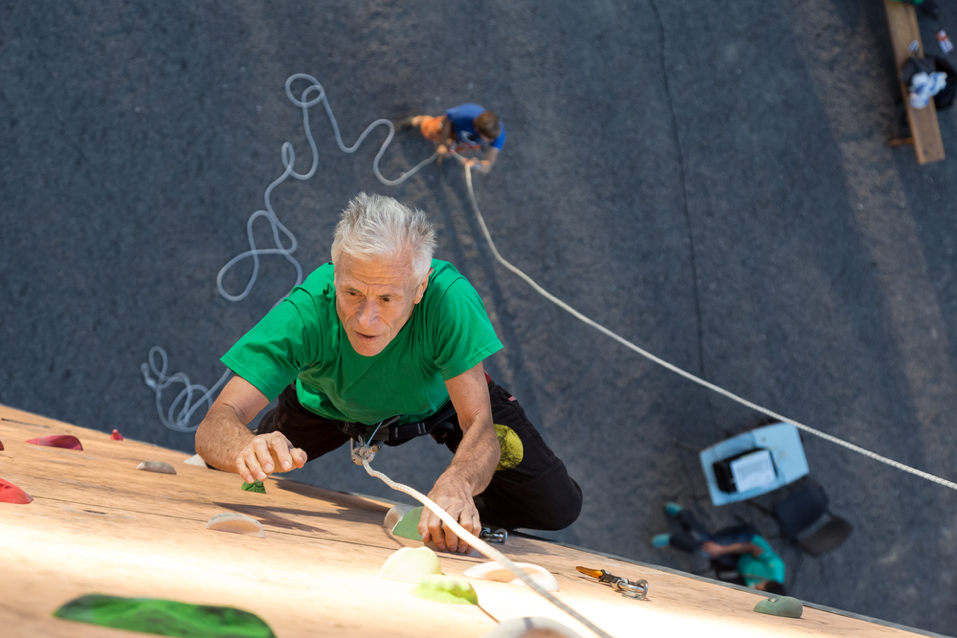Are Happy Relationships the Fountain of Youth? A 75-Year Harvard Study Has the Answer

I have long, LONG been a supporter, cheerleader, proponent, rabble-rouser, whichever term you’d like to use, of the idea of authentic, high-quality, deep relationships. I believe it’s critical to have certain people in your life you can be truly open and emotionally intimate with; those who you feel fully secure with.
Whether it’s your partner, family members, close friends, or colleagues, I’ve always observed that people who were deeply connected to others lived happier lives.
As it turns out, others who share this belief like myself were evidently onto something!
Recently, this has been substantiated by a study out of Harvard. This study is unique in that it has spanned more than 75 years so far, and is still active! As a matter of fact, 2018 will mark its 80th year.
And what’s more, it’s now evolving to include the children of the original participants, many of whom are in their 90s. A longitudinal study of this length is pretty much unheard of in research.
Here’s Some Background
The Study of Adult Development began at Harvard in 1938 with two groups of men, 268 Harvard graduates from the classes of 1939 – 1944, and 456 men from inner-city Boston. This study began originally to research the “psychological predictors of healthy aging.”
The conclusion? In a nutshell, as Dr. Robert Waldinger, director of the study, summarizes the conclusions like this: “Good relationships keep us healthier and happier. Period.”
The study has published numerous papers on a wide array of topics related to this. There is a treasure trove of data here that proves the validity and reliability of the study’s conclusions.
Recently, I came across Dr. Waldinger’s TED talk on this study. It was astonishing to hear about the depth and length of the study. I’ll spare you the technical details here, but you can check out the video below to satisfy your curiosity.
Three Key Takeaways
- If you are more socially connected later in life, and for that matter in virtually all stages of your lifespan, you will tend to be healthier and happier. And before you start feeling some sort of shame, if you’re not feeling particularly happy right now in your life, no worries. This study isn’t saying that you are expected to be happy at all times in all phases of your life. That’s not realistic for any of us.
- Loneliness and, in particular, chronic loneliness is toxic, no matter your age is. If a person is more isolated or alone than they want to be, then they tend to be less happy, their health starts to decline earlier in life, and their brain function starts to diminish earlier in mid-life as well. Ultimately, the study clearly shows they live shorter lives overall.
- Good relationships protect our health and our brains. When someone feels truly secure in one or more relationships into their 80s, their memories are long, and their brains are sharper.
All good news, right? Yes!
So, how can we ensure that as we grow older, we can still retain these close relationships? I mean, life is complicated sometimes, right?
As you look back over a lifespan, it can almost be divided up into phases, or ‘seasons’ as some say.
From infancy, early childhood, childhood, adolescence, young adulthood, career life, early married life, parenthood, empty nesting, mid-life, to retirement – all these parts of our lives will hold different demands on our time, energy, and attention.
The older we get, the more unusual it is to still have the close relationships we had with childhood friends. Many have moved or passed away. And so, as we grow and evolve through time, so do our relations.
Yet, the need for connection, community, and fellowship remains constant. In caring for ourselves as we endeavor to care for others, we need to have the support, connection with, and security of being with others. It just IS, and this study clearly proves the case.
Keep Relationships Strong
No matter what stage of life you are in, here are some proven tips to keep in mind for maintaining the relationships that will keep you going both now and later in life.
1. Be open and vulnerable.
True intimacy that leads us to feel fulfilled within ourselves and with others requires emotional vulnerability. That can be scary, and that’s why the greatest assets we possess to help us create that intimacy are courage and trust. The reward is the feeling of closeness, of connection. There is nothing …and I mean nothing else that brings us more genuine happiness than that.
Whether you are forming new relationships or strengthening ones you already have, exposing yourself more can be risky. But when you are satisfied that you can share your feelings, and they will likely be received with a positive response (whatever that means for this situation), then dip your proverbial toe in that pool!
The reward of sharing this vulnerability is a deepening of your relationship, more trust, and another source of connection for you. Being connected to others keeps us connected to the world and helps us to continue to feel happy and confident in our place in our community.
2. Take a chance.
It’s so easy to get into routines and patterns. And there are definitely times in our lives when those routines are essential to our well-being! But just because we are aging doesn’t mean we need to stop trying new things, developing new interests, or meeting new people.
Don’t pass by that thing “you’ve always wanted to do.” There is no time like the present to get out there and indulge your adventurous side! What’s the worst that could happen with your new activity? You don’t like it, and then you move on. No biggie.
What’s the BEST that could happen, though? You are invigorated with energy and passion, and probably are meeting others who share in this passion – resulting in new, connected, fun relationships! These friendships (or maybe something else!) may never have come about unless you took a chance and tried something new. Remember to be courageous!
3. Make a point of reaching out.
I’ve never really believed that we’re too busy to do anything. If something is important, we make it a priority. Yes, life is busy. It is for everyone. We all get it. All I’m saying here is that we must make a concerted effort to connect, a CONSCIOUS decision driven by our desire to keep in touch with others.
I have a practice that I’ve mentioned in a couple of other blog posts… I make it a point once a week to actually pick up the phone and CALL someone who I haven’t spoken to in a while. We may “see” each other on Facebook or some other social outlet, but that doesn’t count. This is about hearing each other’s voice, paying attention to their words, and asking about their life and how they are doing. THIS is connection.
I sometimes take this a step further. If someone comes to mind who I haven’t seen or spoken to recently AND there is the added bonus of them being local, I make a date to grab coffee or dinner. There is an energy that flows between people when they are together that cannot be replicated. Seeing their body language and facial expressions, the joy or anguish on their face, allows us to share deeply and authentically. Ultimately, even throughout the inevitable pain of life, just the simple act of sharing all of this is now proven to help make us much happier because we are connected to others.
Stay Connected
Close relationships later in life keep us healthier (mentally and physically) and happier. There is no other way to put it. No matter the reason people come to see me, we always discuss their connectedness to others. Keeping connected to others is so important in good times and in bad. Secure attachment, at any age, is a basic human need. But as we grow older – whether we’re children, teenagers, millennials, or boomers, it takes a conscious intention, driven by your desire to connect with others, to achieve this.
If I can be of any help to you with your relationships, please contact me in my office. I’m more than happy to take 15-minutes to see how I can help.


















